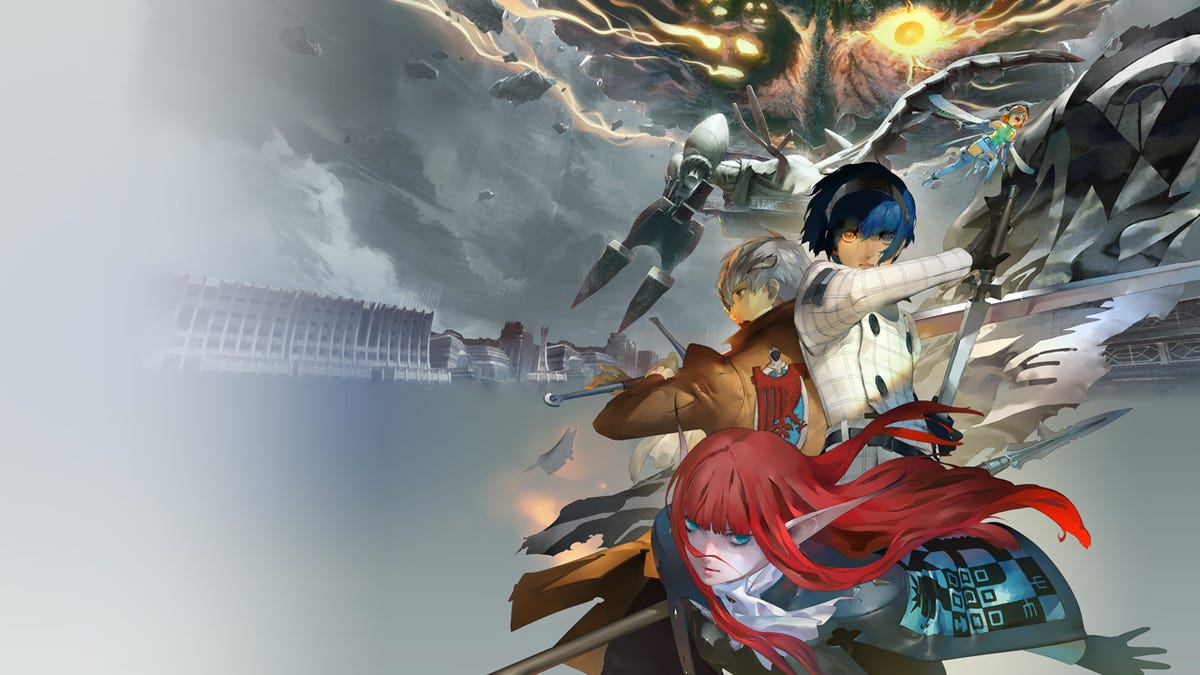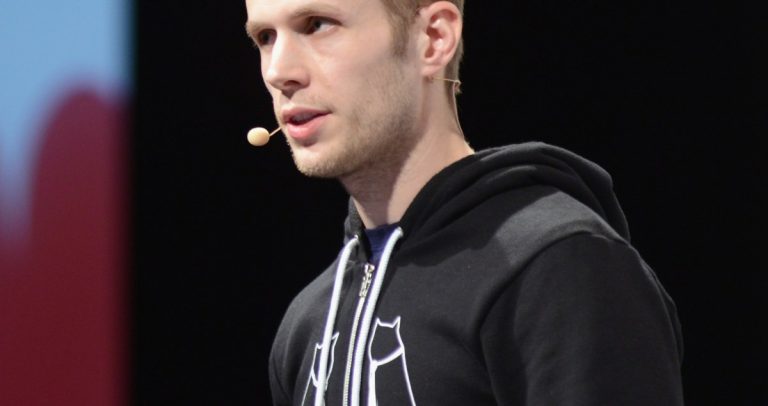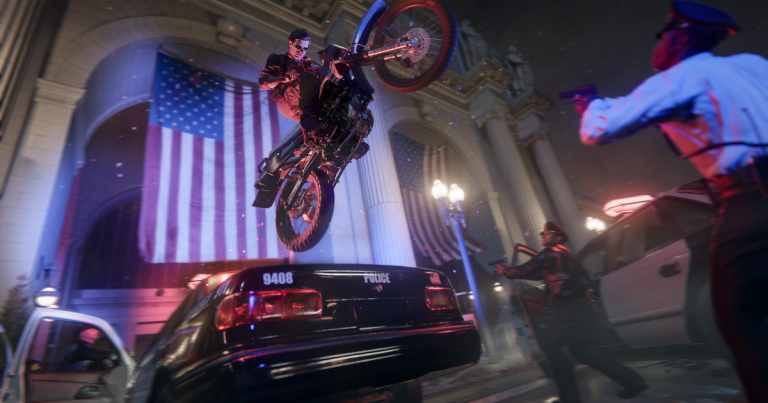Metaphor ReFantazio’s Fantasy World Has A Lot To Say About Ours

One of the most confounding things about video games is how they often tell stories that are clearly meant to be real-world allegories rather than escapist fantasies, but are still often framed as such by the companies that make them. After playing four hours of Metaphor: ReFantazio, the upcoming fantasy RPG from the minds behind the Persona franchise, I enjoyed playing the turn-based battles, watching how it blends action into its overworld to help mitigate the grind, and seeing the ways it borrowed from the long history of Shin Megami Tensei while adding twists and turns all its own. But we already knew a fair bit of that already, and Ethan Gach covered that side of things extensively when he saw the game at Summer Game Fest. I wanted to get a sense of what this new fantasy RPG Atlus had cooking was actually about. What I was most struck by was how overtly it tackles not only election anxiety and the various social issues that arise when people are fighting for power but also seems to be commenting on the futile notion of the fantasy genre as escapism…but Atlus wants to make sure you know the team has “no political agenda.”
Metaphor: ReFantazio follows a young man and his fairy companion Gallica as they navigate the fantasy world of the United Kingdom of Euchronia, but despite its otherworldy nature, Atlus has been explicit that this fantasy world is meant to “mirror” the real world. Our hero is dragged into the world’s politics after the previous king is assassinated and the prince cursed, leading the protagonist to try and save his dear friend while the rest of the world is vying for political power. The ensuing election brings political turmoil to the surface as you travel through the world, with Metaphor delving into its own versions of classism, racism, and all the other -isms.
Metaphor’s hero is part of the Elda tribe, one of the eight tribes found throughout the United Kingdom Of Euchronia. The Elda are viewed as “tainted” by the remaining seven tribes, and have been othered by everyone else. They’re seen as heretical against the teachings of the church and have become so rare in this world that some people don’t even believe they exist. There are systemic and cultural barriers that make it difficult for your character to navigate the world. Exploring a world already in the midst of political upheaval as a marginalized person lets you see the rot firsthand. That’s all well-worn territory, even in this team’s previous works like Persona 5, but the game’s portrayal of these ideas really struck me in how it frames the fantasy genre as escapism.
The main character of Metaphor has a book that tells of a “fantasy” world that sounds a whole lot like ours. It depicts a modern-day metropolis, a completely unified world where everyone is equal and free to live as they choose. But we know that’s not how the real world actually operates, it’s very much projecting an idealized version, a fantasy, if you will, of reality. I’m curious to see if Metaphor examines that disconnect, and in the four hours I played, the game made several allusions to the fact that the real world seems to exist in this game. You name your hero and also yourself as a separate entity who guides him through his journey. The Akademia safe house in which you learn new truths about the world and expand your party’s jobs has books that reference your name. My theory is Metaphor is leading into a big metatextual twist that involves its fantasy world and its idealized vision of ours. That a fantasy world with so many problems that are analogous to ones we experience in the real world imagines mundane city skylines as its own form of escapism is a fascinating framing, especially when fantastical worlds full of impossible things are often used as an excuse by bad-faith actors to pretend works set within them should be viewed as entirely separate from ours and shouldn’t be beholden to any kind of real-world scrutiny.
Metaphor: ReFantazio is clearly based on real-world conflicts, but Atlus says it has “no political agenda”
After my hands-on, I sat down for a group Q&A with a panel of Atlus developers with other members of the press. We asked about quest structures, combat design, relationship building, and plenty of other topics. But when it came to discussing the overtly political story, the conversation was in stark contrast to the game we’d been playing for several hours.
Metaphor producer Junichi Yoshizawa explained through a translator that the election story allowed the team to portray “people putting in a lot of effort and power into making a better future.”
“We wanted to really focus on the power that it can potentially bring to make the world something better,” Yoshizawa said. “And of course, it being, you know, at times a battle, there’s also that festivity to it in trying to make the world better. So we wanted to bring that power to the forefront without ignoring it, but facing it head on depicted that realness within the state. We believe that it has that power to make changes. So this was an element that we had decided to incorporate from a very early conceptual stage.”
Elections are one of the many tools that citizens have to try and enact change within society, and Metaphor doesn’t shy away from the imagery of the common people rising up against corruption to try and make the United Kingdom of Euchronia a better place. When Strohl, one of your party members, awakens to his Persona-like Archetype, he rallies a group of people to his cause, literally tearing his heart out and screaming into it like a microphone. Metaphor isn’t subtle about its ideology. But Yoshizawa immediately followed up his answer with the following:
“Of course, we have no political agenda or message that we want to push with this,” Yoshizawa said. “It’s more so a tool, if you will, that we decided to use to convey the story that we want to in this fantasy world. If there were to be an election, how would people would react to it, how people would think, what people would do to better the future for themselves? So we essentially took this concept as a tool as a motif to push our story to the forefront. So we do hope that separating from that sort of political agenda or message people truly get to enjoy this election perspective and tool within this fantasy story setting.”
Charitably, it seemed Atlus was most wary of Americans assuming this was in direct response to the vitriolic presidential election we are currently experiencing in 2024. Before any of us had a chance to play the game, Atlus played a video of Metaphor director Katsura Hashino introducing the game in which he made clear that its launching during an election cycle was merely a coincidence. I do believe that Metaphor is not a response to any specific election. I could even believe that there might not have been a specific inciting incident that inspired it, rather than just a long history of persecution, classism, and election anxiety that has plagued our world for centuries. But Atlus did, at least, acknowledge that the tribes are meant as a fantasy stand-in for how different cultures navigate political and identity-based anxieties.
“Nobody is perfect, so there are different ways that people face anxiety when they are confronted with it,” Yoshizawa said. “With that idea in mind, we decided to separate these tribes from the actual races that we see in real life where we created different tribes with […] different sort of ways that they feel or how they feel or interact with anxiety. So we’ve taken away all these existing ideas of race and created these new tribes in this game with that as a foundation. So we believe that that is a very original concept for this game and something that we are proud of.
Here’s the thing, Atlus can say that Metaphor: ReFantazio has no political agenda, but this isn’t a story that materializes out of thin air from a team that is imagining a worst-case scenario. Just because it’s not about a specific political campaign or candidate doesn’t mean it isn’t making a statement about the world we live in. The belief that the world can and should be made better than it is right now is an inherently political view that extrapolates beyond a fantasy setting. The attempts to distance itself from reality when it so pointedly mirrors current global, societal unrest isn’t surprising in the current landscape of the video game industry. No company who wants their game to sell millions of copies is going to say outright that “this game is about rising up against corrupt systems and those exist in our world.”
But saying your game has things to say about the way the world is doesn’t automatically mean you’re talking about Kamala Harris and Donald Trump. Saying it’s all just hypotheticals when the game clearly unpacks the notion of the fantasy genre as idealized escapism undercuts the world the team built to examine class, political machinations, and othering. It was jarring to hear Atlus representatives’ attempts to distance Metaphor’s intriguing foundations from anything that might read as controversial. I mean, the game is literally called “Metaphor.” Sometimes you just have to let the art speak for itself, and the excellent four hours I played of Metaphor shouted over even the sanitized answers from someone trying to sell me something.
Source: kotaku.com






